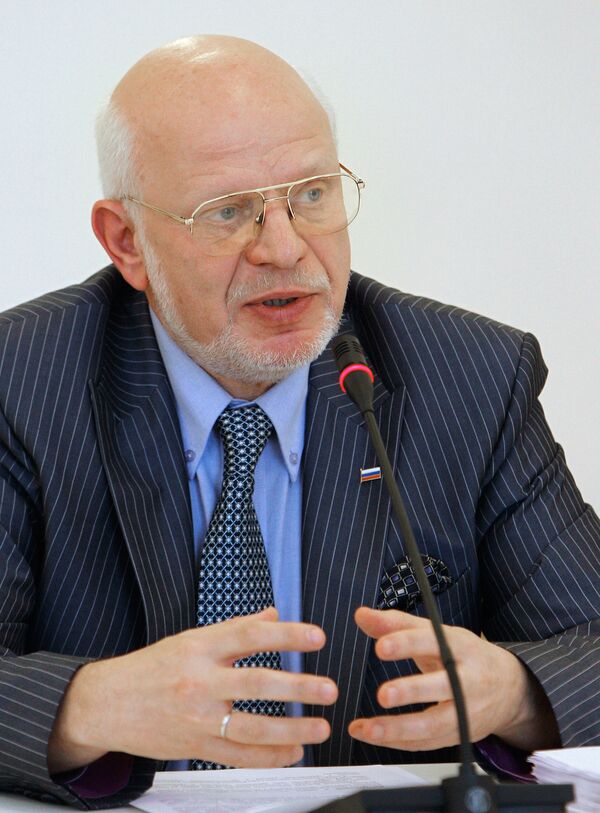The Russian Presidential Council on Human Rights has launched a campaign to ensure that the rights of Russian voters are respected with “surgical precision” during the presidential elections on March 4.
“We think that these elections must be as transparent and fair as possible,” the Council’s head, Mikhail Fedotov, told journalists in Moscow on Wednesday.
In order to achieve this, the Council joined efforts with Golos, the country’s leading independent elections watchdog, and other groups promoting fair elections. It launched a special working group to monitor the forthcoming polls and guarantee that “shadowy” electoral procedures do not affect the vote's results, Fedotov said.
Many analysts view the March 4 polls, in which Russia’s powerful Prime Minister Vladimir Putin is running for his third term as president, as a major test of his leadership. Putin’s electoral rating currently stands at 52 percent, according to the latest survey by state-run VTsIOM pollster, and winning the vote in the first round may not be as easy for him as it was back in the mid-2000s, when he enjoyed the support of some 70 percent of Russians.
Mass street protests that swept across Russia following the December 4 parliamentary vote, which protesters believe were rigged in favor of Putin’s United Russia party, have left the premier with no choice but to move to ensure that the presidential vote is as transparent as possible.
In a bid to improve public control of the vote and avoid questions from the opposition, Putin has ordered polling stations across Russia to be equiped with web-cameras. Critics are doubtful over the efficiency of the measure, which is estimated to cost the Russian budget some 14 billion rubles ($456 million), saying that the small size and low quality of the video footage to be broadcast on the internet can make it impossible to register violations and that fraud can also take place outside vote rooms.
Political analyst and Council member Dmitry Oreshkin admitted on Wednesday that the idea was limited in its efficiency, although cameras would help control the voter turnover.
“I believe ensuring the rights of observers would be much more efficient,” said Oreshkin, who was one of the initiators of the League of Voters, a public movement in support of fair elections launched earlier this month by a group of liberal public figures.
Golos registered many cases of election monitors being kicked out of polling stations by police officers during the December 4 parliamentary vote without any obvious reason. The U.S.-funded group has faced pressure from the authorities during and after the vote, with Putin slamming Washington for instigating protests inside Russia and Central Election Commission head Vladimir Churov accusing Golos of bias against United Russia.
Yelena Panfilova, a Council member and director of Transparancy International’s Russian branch, said on Wednesday “many” Russians wanted to become observers during the election in March.
Inna Kurtyukova who coordinates the Civilian Observer project said some 1,000 people have already registered to monitor the vote, while another 2,000 observers at the December 4 polls were also expected to join.
Golos spokeswoman Olga Novosad said the group expected “more than 2,000” volunteer correspondents for its Civil Voice newspaper to work at polling stations across Russia on March 4.
“This means our civil society has finally begun to mature,” Panfilova said.




